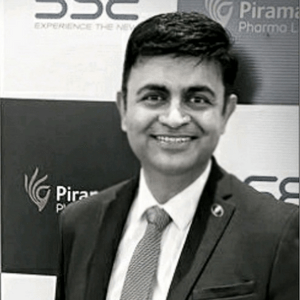In today’s rapidly evolving world, global leadership is more important than ever before. It involves understanding and valuing diversity, promoting collaboration and working towards a common goal. So, what are the key components of a true global leadership mindset?
The top two challenges faced by global leaders are: expanding their cultural understanding to multiple cultures, and understanding the complexity of networking and influence on a global stage.
Udbhav Ganjoo, head – HR, global operations, Viatris, opines, “To be a successful global leader, one should have a strategic vision for the long term, and be able to understand cultural nuances across different geographies and cultures. It’s also important to gain the commitment of employees and external stakeholders to improve customer satisfaction.”
“The top two challenges faced by global leaders are expanding their cultural understanding to multiple cultures and understanding the complexity of networking and influence on a global stage.”
Sunil Singh, former CHRO, Stellar Value Chain Solutions
He adds that a collaborative leadership mindset that integrates various segments of the organisation is also necessary. Effective communication is key, as issues must be addressed promptly and clarity must be provided to the leadership team. It’s essential to maintain a budget that depends on the business’ needs, and to have an agile and flexible global mindset to provide guidance and make necessary changes.
Sunil Singh, former CHRO, Stellar Value Chain Solutions, feels that global leaders must possess certain qualities to effectively lead a diverse team in today’s globalised world. He strongly believes that the four most important qualities for global leadership are ethics and values, emotional intelligence, cultural intelligence and the ability to create a multi-geography network.
Multiculturalism
Multiculturalism is a significant aspect of global leadership. In a world where people from different cultures, ethnicities and backgrounds come together, it is important for leaders to be sensitive to and understanding of these differences.
A global leader who embraces multiculturalism recognises the value of diversity and actively seeks to promote inclusivity in all aspects of their work.
One of the key benefits of multiculturalism in global leadership is the diversity of perspectives and ideas it brings to the table. When leaders work with people from different cultural backgrounds, they are exposed to a range of viewpoints and approaches.
Ethics and values
The ability to demonstrate strong ethical principles and values is critical for global leaders. They must be able to navigate complex ethical issues, make difficult decisions and act in the best interests of their organisations and stakeholders. Ethical leadership also involves modelling behaviours that promote fairness, honesty and accountability.
Emotional intelligence
Global leaders must be skilled in emotional intelligence, which is the ability to recognise, understand, and manage one’s own emotions as well as those of others. Emotional intelligence enables leaders to communicate effectively, build relationships, and inspire trust and loyalty among their teams and stakeholders. It also helps leaders manage conflict and negotiate effectively in diverse cultural settings.
“In today’s fast-paced and globalised world, effective leadership requires an adaptive communication style that values and incorporates cultural differences, norms and work styles of diverse teams”.
Unmesh Rai, vice president – HR, Piramal Enterprises
Creating a multi-geography network
Finally, global leaders must be able to create and manage a network of relationships across different geographies and cultures. This involves building strong partnerships with stakeholders, customers and suppliers in different regions, as well as collaborating with colleagues and peers across different time zones and languages.
Leaders who are skilled in creating a multi-geography network are able to leverage the strengths and resources of different regions and develop innovative solutions to complex global challenges.
According to Unmesh Rai, vice president – HR, Piramal Enterprises, “In today’s fast-paced and globalised world, effective leadership requires an adaptive communication style that values and incorporates cultural differences, norms and work styles of diverse teams”.
He adds, “Truly global leaders must be able to leverage their global worldview, connecting the dots across trends, patterns and opportunities, to creatively solve complex problems.”
Sustainability
Sustainability is critical because businesses must operate in an environmentally-responsible manner, while balancing the interests of all stakeholders, including customers, employees and communities. Leaders who understand and prioritise sustainability issues can build more resilient and profitable businesses while contributing to a healthier planet.
“That a collaborative leadership mindset that integrates various segments of the organisation is also necessary.”
Udbhav Ganjoo, head – HR, global operations, Viatris, opines
Digital literacy
Digital literacy is also essential in today’s world, as technology continues to transform how we work, communicate and do business. Leaders who are knowledgeable about digital tools and platforms can stay ahead of the curve, effectively communicate with tech-savvy team members and identify innovative solutions to complex problems.
To be truly effective, global leaders must be able to balance these two emerging areas of expertise with traditional leadership skills, cultural sensitivity and a global mindset.
However, Singh adds that being a global leader comes with a unique set of challenges that can make the job both rewarding and demanding.
“The top two challenges faced by global leaders are expanding their cultural understanding to multiple cultures and understanding the complexity of networking and influence on a global stage. Failure to do so can quickly undermine their effectiveness and success in a global leadership role,” shares Singh.
A true global leadership mindset is essential for success in today’s interconnected world. It involves valuing diversity, promoting collaboration and working towards a common goal. Developing a global leadership mindset requires a commitment to developing key skills such as communication, cultural competence and adaptability.






